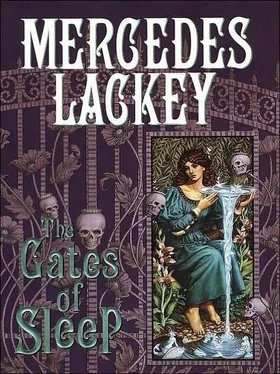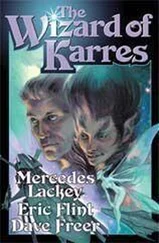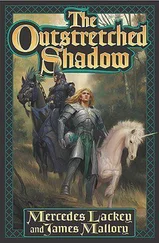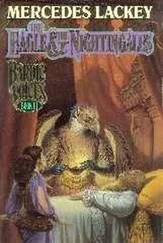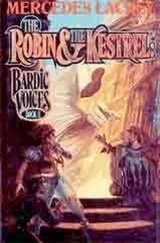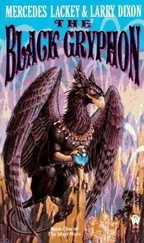“Now that the room’s been put to rights, come down with me and we’ll bake some apple pies,” Margherita continued, linking her arm with Marina’s. “There’s nothing better to put a fine scent on the house than apple pies.”
“I couldn’t agree more,” Marina laughed. “And besides, if you give me something to do, I won’t be fretting my head off.”
“Teh. You’re getting far too clever for me. It’s a good thing Elizabeth is coming; at least there will be someone here now whose habits you don’t know inside and out.”
That’s a lovely thought. One of the worst things about winter corning on was that she was bound to be mostly confined to Blackbird Cottage with people she knew all too well—loved, surely, but still, she could practically predict their every thought and action. But this winter would be different. Oh, I hope it’s very, very different!
As usual, it was raining. Uncle Sebastian had intended to go to the railway station in the pony cart, but Aunt Margherita had stamped her foot and decreed that under no circumstances was he going to subject poor Elizabeth to an open cart in the pouring rain. So he had arranged to borrow the parson’s creaky old-fashioned carriage, which meant that there was enough room for Marina to go along.
Marina peered anxiously out the little window next to the door; the old glass made the view a bit wavery, and the rain didn’t help. Finally Sebastian arrived with the carriage, an old black contraption with a high, arched roof like a mail coach, that looked as if it had carried parsons’ families since the time of the third George. The parson’s horse, the unlikely offspring of one of the gentry’s hunters and a farmer’s mare, a beast of indeterminate color rendered even more indeterminate by his wet hide, looked completely indifferent to the downpour. The same could not be said of Sebastian perched up on the block where he huddled in the non-existent coachman’s stead, wrapped up in a huge mackintosh with a shapeless broad-brimmed hat pulled down over his eyes.
He shouldn’t complain; he’d have been just as wet on the pony cart.
Marina, her rain cape pulled around her and her aunt’s umbrella over her head, made a dash across the farmyard for the carriage and clambered inside. The parson’s predecessor had long ago replaced the horsehair-covered seats with more practical but far less comfortable wooden ones, and as the coach rolled away, she had to hang on with both hands to guard herself from sliding across the polished slats during the bumps and jounces. When the coach was loaded with the parson’s numerous family, the fact that they were all wedged together against the sides of the vehicle meant no one got thrown against the sides, but with just Marina in here, she could be thrown to the floor if she didn’t hang on for dear life. The coach creaked and complained, rocking from side to side, the rain drummed on the roof, and water dripped inside the six small windows, for the curtains had long since been removed in the interest of economy as well.
Poor Elizabeth! She’ll be bounced to bits before we get home!
The station wasn’t far, but long before they arrived, Marina had decided that their guest would have been far more comfortable in the pony cart, rain or no rain.
But then I wouldn’t have been able to come meet her.
She’d thought that she’d be on fire with impatience, that the trip would be interminable. It wasn’t, but only because she was so busy holding on, and trying to keep from being bounced around like an India rubber ball from one side of the coach to the other. It came as a welcome surprise to get a glimpse, through the curtain of rain, of the railway station ahead of them, and realize that they were almost there. She didn’t even wait for the coach to stop moving once they reached the station; she flew out quite as if she’d been launched from the door, dashing across the rain-slicked pavement of the platform, leaving her uncle to tie up the horse and follow her.
She reached the other side of the station and peered down the track, and saw the welcome plume of smoke from the engine in the distance, rising above the trees. As Sebastian joined her on the platform, the train itself came into view, its warning whistle carrying through the rain. Marina remembered not to bounce with impatience—she wasn’t a child anymore—but she clutched the handle of the umbrella tightly with both hands, and her uncle smiled sideways at her.
It seemed that she was not the only one impatient for the train to pull into the station. There was one particular head that kept peeking out of one compartment window—and the very instant that the train halted, that compartment door flew open, and a trim figure in emerald wool shot out of it, heedless of the rain.
“Sebastian!” Elizabeth Hastings gave Uncle Sebastian quite as hearty an embrace as if he had been her brother, and Marina hastened to get the umbrella over her before the ostrich plumes on her neat little hat got soaked. “Good gad, this appalling weather! Margherita warned me, and I didn’t believe her! Hello Marina!” She detached herself from Sebastian and gave Marina just as enthusiastic a hug, with a kiss on her cheek for good measure.
“You didn’t believe her about what?” Marina asked.
“Oh, the rain, of course. She swore that in winter, this part of Devon got more rain than the whole of England put together, and I swear to you that it was bright and sunny a few miles back!” She took the umbrella from Marina, as a porter hauled her baggage out of the baggage car onto the platform behind them. “Not a cloud, not a sign of a cloud, until we topped a hill, and then—like a wall, it was, and just a wall of clouds, and most of them pouring rain!”
“That’s what you get for not believing Margherita when she tells you something,” Sebastian said, with laughter in his eyes. “You should know the Earth Masters by now! They don’t feel it necessary to exercise their imagination unless it’s in the service of art. When they tell you something, it’s unembroidered fact!”
“Oh, you tiresome thing, I told you that it was my own fault!” She shook her head, and little drops of rain flew from the ornaments on her bonnet as she laughed. “Come along with you, let’s get my things into whatever contraption you’ve commandeered to get me, and get ourselves home, before we all drown!”
“You’re a Water Master,” Sebastian teased, a grin creasing his face. “You can’t drown. Now me, if I don’t find myself drowning in this antagonistic Element, I’m probably going to perish of melancholy.”
But as the train pulled away from the station with a whistle and a great rush of steam and creaking of metal, he rounded up the stationmaster’s boys and got Elizabeth’s baggage fastened up behind and atop the coach. There was quite a bit of it; three trunks and some assorted boxes. But she was staying for weeks, after all, and given the weather, couldn’t count on regular washdays.
Oh, I wonder what she’s brought to wear. She’s a lady, and in society—what kind of gowns did she bring? Marina was torn between hoping that Elizabeth had brought all manner of fine things, and fear that she had, and that her wardrobe would be utterly unsuitable for Blackbird Cottage and a Devon winter.
The rain did not abate in the least, and Sebastian looked up at the sky before he climbed aboard the coachman’s box, his hat brim sending a stream down the back of his mackintosh. “I don’t suppose you’re prepared to do anything about this, are you?” he asked Elizabeth.
Elizabeth paused with one foot on the step. “In the first place, I’m a Water Master, not an Air Master; storms are not my venue, and I would need an Alliance with Air at the very least to clear this muck away permanently—or at least, for more than a day. In the second place, all I can do by myself—without interfering in a way that would shout to everyone with a Gift that a Magus Major was here—is to create just enough of a pause in the rain to give you time to get the horse turned toward Blackbird Cottage. Now if that’s what you want—or if you really think it’s prudent to let every Power in the county know that I’ve arrived—”
Читать дальше
